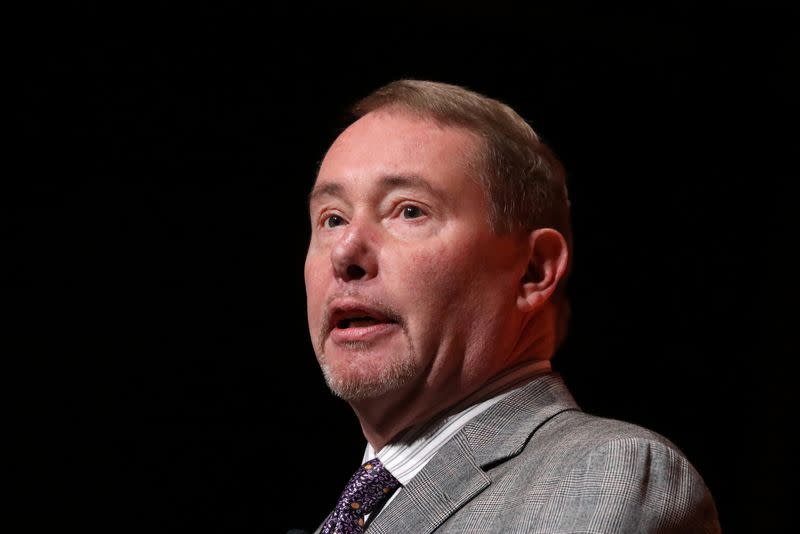DoubleLine's Gundlach says Fed's 'higher for longer' stance a problem

By Gertrude Chavez-Dreyfuss
NEW YORK (Reuters) - The Federal Reserve's stance of "higher for longer" on interest rates has become a major challenge and the economy is already showing signs that it is so, said DoubleLine Capital Chief Executive Officer Jeff Gundlach.
"It's a problem," Gundlach, noting that the stock market "has already figured it out and it doesn't help that bond yields have gone up." He spoke at an event organized by the investment manager in New York City.
Yields on benchmark Treasury 10-year notes hit 4.806% and on 30-year bonds surged to 4.950% on Tuesday, both the highest since 2007. Gundlach said if the 10-year yield goes above 5%, "and we're not that far off, that would be a sticker shock."
The surge in Treasury yields undermined major stock indexes on Tuesday. The S&P 500 index closed on Tuesday at its lowest level since June 1, while the Dow turned negative for the year for the first time since June and ended at its lowest level since May 31. The Nasdaq also closed at its lowest since May 31.
"It's wise to be aware that there would be economic weakness in the first half of next year," Gundlach said, adding that he expects a rate cut in the same period as well.
(Reporting by Gertrude Chavez-Dreyfuss; Editing by Cynthia Osterman)

 Yahoo Finance
Yahoo Finance 